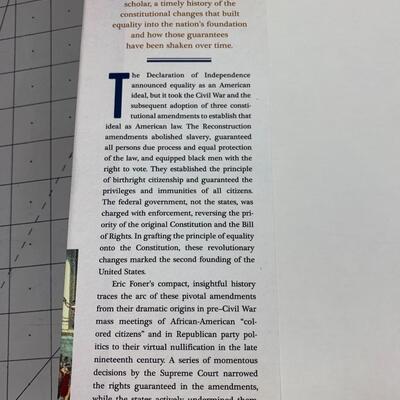

With its ratification in 1870, many whites in the North concluded that the work of establishing black freedom was done. Henry Wilson of Massachusetts put it, the best congressional Republicans could get. The 15th Amendment’s narrow terms were, as Sen. In 1867, white voters in Connecticut, Kansas, Ohio and Minnesota all rejected referendums to give black men the vote.

But more affirmative voting rights for black men were controversial. Radicals in the Congress complained that states could still prevent freedpeople from voting by race-neutral ruses such as poll taxes and literacy tests. The 15th Amendment did not either, but it barred states from denying voting rights on the basis of race. The Constitution of 1787 by its terms had not established a right to vote for anyone. Grant won the presidency in 1868, congressional Republicans took note of his narrow margin of victory and determined to amend the Constitution again in hopes of establishing and maintaining a solid Republican voting bloc among African Americans. The fifth section empowered Congress to enforce the first four sections “by appropriate legislation.” The third and fourth sections barred certain Confederate officeholders from holding office in the United States and canceled debts incurred by the Confederacy. The same section of the new amendment barred states from abridging the privileges or immunities of citizens of the United States, from depriving any person of due process, and from denying any person “the equal protection of the laws.” The now-forgotten but politically crucial second section reduced the representation of states in the House of Representatives by the proportion of their adult male citizens denied the right to vote.

The first section established citizenship for people born in the United States, thereby overturning the infamousĭred Scott decision of 1857, which held that African Americans, slaves or not, could not be citizens.

The 14th Amendment emerged in large part because support for the rights of freedpeople was a political imperative for the Republican Congress.įrom a welter of competing proposals, Congress enacted five separate provisions as a take-it-or-leave-it package.


 0 kommentar(er)
0 kommentar(er)
